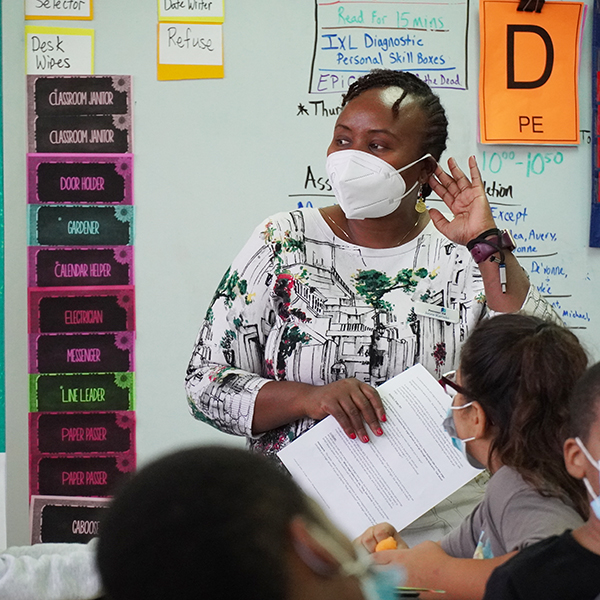Spotlight on Heritage Grantee PreventEd
Part of the eligibility for a Heritage Grant from YouthBridge is a nonprofit leadership that is eager to participate in a core capacity assessment during its three-year funding timeframe. PreventEd certainly fits the criteria. “Obviously, the grant money is wonderful, but we are especially excited about the opportunity to get an outside view of our current strategic plan and organizational effectiveness,” says Nichole Dawsey, Executive Director of PreventEd, formerly the National Council on Alcoholism and Drug Abuse. She hopes the assessment will help inform decisions around evaluating impact, continuity or succession planning, professional development for middle managers and “other areas where we may not even be aware of the gaps.”
Dawsey also says the grant money will go a long way in helping to grow PreventEd’s efforts in advocacy. “That’s advocacy with a small ‘a’,” she explains. “It’s not political, or lobbying, but using your influence to advance your mission.” That mission has definitely evolved over the past 57 years, she says, but it’s continued to center on changing the stigma surrounding substance use disorder and help those struggling to find recovery.
“We’ve never provided treatment, or endorsed any particular modality,” says Dawsey. “Our role has been to work toward a community free of alcohol and other drug addiction and misuse through education, intervention and advocacy.” An important part of education and intervention, she says, involves beginning the necessary conversations with children as early as Kindergarten. “Children are exposed to so much information and misinformation from a young age, they may have access to drugs and alcohol in the home, and likely have peers experimenting with substances, so it’s important to talk early and often.”
Through its school-based prevention programs, PreventEd provides four-lesson units specific to grade level, with elementary school topics focused on building life skills and healthy friendships, middle school sessions on making healthy choices and navigating peer pressure, and in high school, discussions on how to be a positive influence or speak to someone whose substance use or other behavior is a cause for concern. Taking the idea of being a prevention advocate further, the organization also has Youth Leadership programs that equip high school students to lead prevention of substance misuse in their schools and communities.
“Everyone either remembers or has likely heard of the ‘Just Say No’ mantra of the eighties,” says Dawsey. “Today, we know how much more complicated substance abuse is, including alcohol, and how ineffective prevention is without getting to the root causes and providing individuals, especially young people, the tools they need to make key decisions.”
According to PreventEd’s annual report, more than 50,000 students received its school-based prevention training last year, with 90% of students reporting that the program influenced them to stay away from cannabis and 89% feeling more confident about handling peer pressure.
Youth also play an essential role in advocacy, says Dawsey, so the organization convenes a teen-led coalition of 9th-12th graders who use their voices to advocate for substance use prevention and mental health issues that impact the lives of teens. The coalition meets monthly and also plans an annual advocacy event in Jefferson City, where participants have legislative visits with State Senators and Representatives.
“Our current generation is paying attention to the drug crisis and extremely mindful of what they put in their bodies,” she says. “They make me optimistic because they are the ones who will be leading the change.”
If you would like to donate or have any questions about this organization, please contact Allison McDonald.
